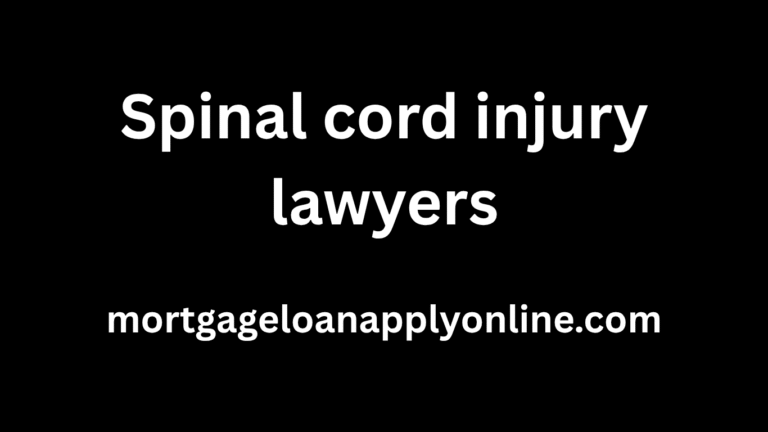Purchase Structured Settlements – Guide to Buying Structured Settlements in the USA
Structured settlements are a financial arrangement where a person receives periodic payments after settling a legal claim. These settlements are often used in personal injury lawsuits, medical malpractice, or wrongful death cases. Instead of receiving a lump sum, the claimant is paid over time, offering tax advantages and long-term financial security.
But what if you want to access those future payments right now? That’s where purchasing structured settlements comes in. This article will guide you through everything you need to know about how to purchase structured settlements, the benefits, legal considerations, risks, and how you can safely invest in this market for stable income.
What Does It Mean to Purchase Structured Settlements?
To purchase structured settlements means buying someone else’s future payment stream in exchange for a lump sum. Buyers are typically individuals or companies looking for a stable, long-term return on investment. The seller receives immediate cash, while the buyer receives scheduled payments over time.
Purchasing structured settlements has become a popular financial strategy in the USA, especially among investors who prefer guaranteed returns over the volatility of stock markets.
Why Do People Sell Structured Settlements?
There are many reasons why individuals might choose to sell their structured settlements:
- Urgent financial needs like medical bills, home purchases, or education costs
- Debt consolidation to avoid high-interest loans
- Starting a business or investing in other opportunities
- Avoiding inflation risks from long-term payouts
In such cases, they find buyers willing to purchase structured settlements for a lump-sum payout.
Legal Framework of Purchasing Structured Settlements
Purchasing structured settlements in the USA is heavily regulated to protect the seller. Laws vary by state, but federal protections include:
- The Structured Settlement Protection Act (SSPA) – ensures that the transfer is in the best interest of the seller
- Court approval – every purchase must be approved by a judge
- Independent financial advice – many states require sellers to receive legal or financial counsel
Buyers must follow these rules strictly to legally purchase structured settlements.
How to Purchase Structured Settlements: Step-by-Step Guide
Step 1: Find a Seller
Sellers usually connect with buyers through settlement brokers or factoring companies. Some online platforms list structured settlements available for purchase.
Step 2: Verify Payment Details
Confirm the source of payments (typically from a life insurance company), amount, schedule, and duration.
Step 3: Evaluate Risk and Return
Structured settlements offer fixed returns. Before you purchase structured settlements, calculate the internal rate of return (IRR) and consider risk factors like insurer solvency and payment delays.
Step 4: Legal Review
Hire an attorney to review the contract. Ensure the purchase complies with federal and state laws, including SSPA and local jurisdiction.
Step 5: Court Approval
Submit the paperwork to a court. The judge ensures the seller is not being exploited and approves the sale.
Step 6: Finalize and Transfer Payments
After approval, payment streams are reassigned to the buyer, and the seller receives a lump-sum payout.
Advantages When You Purchase Structured Settlements
Predictable Returns
Structured settlements provide fixed, predictable income over time. This is ideal for conservative investors.
Higher Yields Than Bonds
The return rate when you purchase structured settlements often exceeds that of bonds, especially if the seller is in urgent need and willing to discount their settlement.
Tax Benefits
Most structured settlement payments are tax-free for the original recipient. The IRS may not tax the buyer’s gains as long as they’re structured properly.
Legal Protections
Court approval and state/federal regulations ensure that structured settlement purchases are safe and transparent.
Risks of Purchasing Structured Settlements
Despite the advantages, there are risks to be aware of when you purchase structured settlements:
Insurance Company Risk
Payments typically come from annuities issued by insurance firms. If the insurer fails, your investment may be at risk.
Liquidity Issues
Once you purchase structured settlements, you cannot easily sell them. They are long-term investments with limited resale options.
Legal Delays
Court approval can take 30–90 days or more, depending on jurisdiction. The process can be delayed or denied.
Seller Fraud
If the seller fails to disclose multiple sales or misrepresents the settlement, it could lead to legal disputes.
Who Can Purchase Structured Settlements?
Structured settlement buyers include:
- Institutional investors like hedge funds and insurance companies
- Private investors seeking long-term income
- Factoring companies specializing in settlement purchases
- Self-directed IRA holders investing for retirement
Whether you’re an individual or a business, you can legally purchase structured settlements if you follow all regulations.
How to Find Structured Settlements to Buy
You can find structured settlements for sale through:
- Settlement brokers
- Online marketplaces (e.g., Annuity.org, Fairfield Funding)
- Factoring companies
- Private investor networks
Before purchasing, always verify the payment stream, insurer credibility, and legal compliance.
Structured Settlement Market in the USA
The U.S. structured settlement market is robust, with over $6 billion in annual settlements. Thousands of people sell their settlements each year, creating a consistent market for buyers.
Demand for purchasing structured settlements is especially high in states like:
- California
- Florida
- Texas
- New York
- Illinois
USA-based traffic in this niche continues to rise, making it a lucrative investment and content opportunity.
Tax Implications of Purchasing Structured Settlements
When you purchase structured settlements, tax liability depends on:
- Purchase structure – direct or through an entity
- Profit type – capital gain or interest
- Jurisdiction – varies by state
Consult a tax advisor for specific advice. Structuring the purchase via a self-directed IRA or trust may offer additional tax efficiency.
Red Flags to Avoid
When trying to purchase structured settlements, watch out for:
- Unverified sellers – always do background checks
- No court approval – this is illegal
- Exaggerated returns – beware of unrealistic promises
- Lack of transparency – demand full contract details and disclosure
Working with reputable brokers and legal professionals can protect your investment.
Choosing a Company to Purchase Structured Settlements
Some of the most trusted USA-based companies in this industry include:
- Peachtree Financial Solutions
- J.G. Wentworth
- Fairfield Funding
- Olive Branch Funding
- SenecaOne
Before committing, compare:
- Offer prices
- Legal assistance
- Payment security
- Reputation and reviews
Investment Strategies for Structured Settlements
Diversify Across Policies
Don’t put all your money into one payment stream. Buy settlements from various issuers and with different timelines.
Use for Retirement Income
Purchasing structured settlements can be a great addition to your retirement portfolio. The regular, predictable payments provide peace of mind.
Reinvest Payouts
Once you start receiving payments, consider reinvesting them in additional settlements to grow your portfolio.
FAQs About Purchase Structured Settlements
Is it legal to purchase structured settlements in the USA?
Yes. But all transactions must go through court approval and follow the Structured Settlement Protection Act.
What is the typical return when I purchase structured settlements?
Returns vary but often range from 4% to 7% annually, depending on the seller’s urgency and discount rate.
Are structured settlement payments guaranteed?
Payments come from annuity contracts issued by insurance companies. Choose insurers with high credit ratings (A+ or better).
Can I sell a structured settlement I’ve already purchased?
Yes, but the secondary market is limited. You may have to sell at a discount.
How long does it take to complete a structured settlement purchase?
The average time is 30 to 90 days, depending on court approval and documentation.
Final Thoughts-Is Purchasing Structured Settlements Right for You?
If you’re seeking safe, long-term returns and can commit to an illiquid asset, choosing to purchase structured settlements is a smart strategy. The combination of legal protection, predictable income, and above-market returns make this option especially attractive in a low-interest environment.
However, it’s crucial to do your due diligence, work with reliable brokers, and get legal counsel. Structured settlements are not for quick profit seekers but for patient investors who understand the value of steady income.
Conclusion
In today’s uncertain financial landscape, the ability to purchase structured settlements offers a unique path to reliable and stable returns. As more individuals look for ways to turn future payments into immediate cash, the demand for structured settlement purchases continues to grow—especially in the USA.
If you want to invest safely and smartly, start researching how to purchase structured settlements today. With the right guidance and legal framework, it can be a profitable addition to your financial portfolio.





